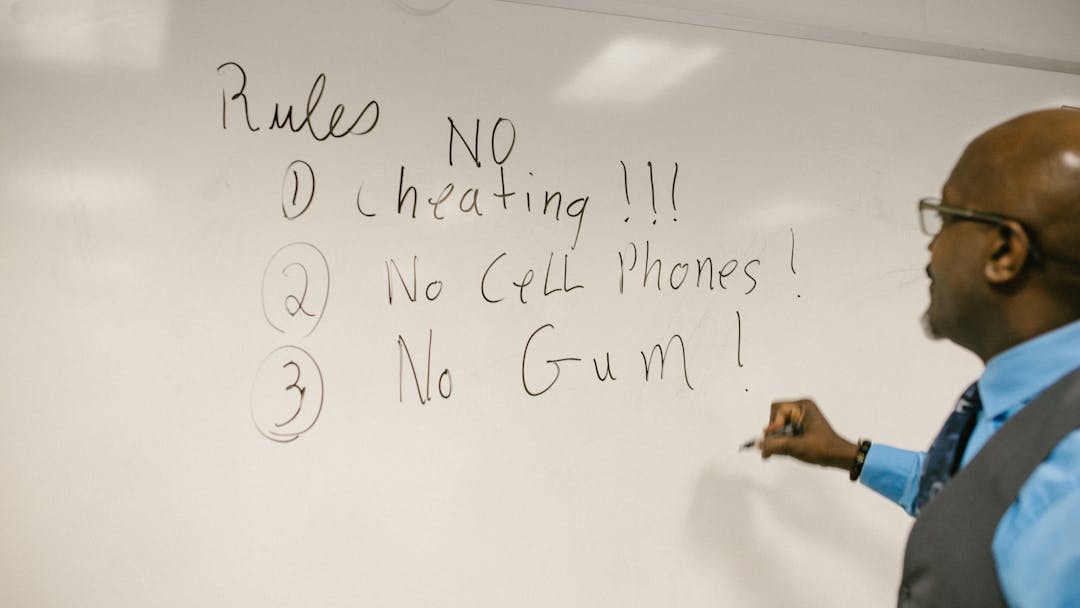Understanding the Rule of Completeness in Michigan Courts: MRE 106
In the pursuit of truth and ensuring fairness during legal proceedings, the Michigan Rules of Evidence (MRE) play a crucial role.
One particular rule, MRE 106 (Completeness), safeguards against misleading interpretations and fosters a more comprehensive understanding of presented evidence.
What is the Rule of Completeness?
MRE 106 states: “If a party introduces part of a writing or recorded statement, any other party may introduce the remainder, or so much thereof as is relevant to the portion introduced, if the remainder or portion thereof offered completes the statement or renders it more understandable.”
In simpler terms, when a portion of a written or recorded statement is presented in court, the opposing party has the right to introduce the remaining relevant parts of the statement.
This ensures that the jury or judge hears the full context and avoids being swayed by a potentially misleading snippet of evidence.
Why is the Rule of Completeness Important?
Imagine a scenario where the prosecution presents a written excerpt from a witness’s statement, highlighting a specific sentence that seemingly incriminates the defendant. Without the complete statement, the jury might be left with an incomplete picture, potentially overlooking crucial contextual details or even contradictory information that could exonerate the defendant.
MRE 106 prevents such scenarios by allowing the defense to introduce the remaining relevant parts of the statement. This ensures that:
- The jury has access to a more complete picture and can make a well-informed decision based on all relevant information.
- Misleading interpretations are minimized as the opposing party can present the full context of the statement.
- Fairness is upheld by allowing both sides to present a complete picture of their case.
It’s important to note:
- The opposing party can only introduce relevant portions of the statement, not everything. The court will determine what constitutes relevant information based on the specific case and the previously introduced portion.
- MRE 106 only applies to written or recorded statements, not oral statements.
Conclusion
MRE 106 plays a vital role in ensuring fairness and promoting a complete understanding of evidence in Michigan courts. By allowing the introduction of relevant, contextual information, the rule helps prevent misleading interpretations and fosters a more just legal process.

Related Articles
No Results Found
The page you requested could not be found. Try refining your search, or use the navigation above to locate the post.
More Posts

Komorn Law Secures Release Of Lorincz Child From CPS in Marijuana Custody Case
“This is one of those cases in an attorney’s career that is not easily forgotten, and is a reminder to me of the reason I became an attorney.” – Michael Komorn, attorney from Komorn Law and recipient of the Michigan Bar Association Right to Counsel Award for 2015....

Komorn AVVO Reviews
Research no further, call Komorn. 5.0 stars Posted by a client December 31, 2015 Hired attorney After an incident involving my medical marihuana grow, I found myself being charged with 2 manufacturing felonies. Upon a recommendation from an associate, I retained...

Criminal Defense Attorney of Michigan Award Committee
The Criminal Defense Attorney of Michigan’s Award Committee has selected Michael J. Komorn as the recipient of their Right to Counsel Award. This award recognizes the amazing contributions of a group or individual in the form of legal representation or other...


Judge dismissed felony charge against medical marijuana patient Max Lorincz
OTTAWA COUNTY, Mich. – After 16 months of a criminal and family court battle, an Ottawa County Circuit Court Judge dismissed wrongful felony charges against a Spring Lake father and card-carrying medical marijuana patient for having “synthetic THC.” Friday Max...


Southfield attorneys accuse MSP Crime Lab of negligence and incompetence
Two local attorneys have filed a formal complaint against the Michigan State Police Crime Lab, suggesting the agency should be made into an independent entity, but state officials have refuted the accusations of negligence and incompetence. Southfield-based...



Forensic scientists blast State Police crime lab THC policy as man fights to get son back
Maxwell Lorincz lives in Spring Lake near Lake Michigan with his wife and their six-year-old son. At least, they did live with their son, until a year and a half ago. They lost custody of him after Lorincz was charged with a felony for possessing synthetic THC....



People v Redden & Clark – MI Medical Marijuana hearing – February 20 2013
During this February 20, 2013 hearing, Assistant Oakland County Prosecutor Beth Hand notified the court that her office is contemplating filing criminal charges against a medical doctor for his involvement in certifying two medical marijuana patients, Robert Redden...



Medical marijuana lawyers want state crime lab moved out of Michigan State Police
"The attorneys claim the policy change is leading to unfair felony charges for patients who would otherwise face misdemeanors." Posted on MichiganRadio.org A group of criminal defense attorneys says the Michigan State Police (MSP) should no longer...


Defense attorneys seek fed inquiry of MSP crime labs
Southfield — Three defense attorneys are asking the federal government to investigate the Michigan State Police crime laboratories, alleging misconduct in their testing for pending drug cases. Southfield defense attorneys Neil Rockind and Michael Komorn, along...


MI Cops Change Policy So They Can Falsely Imprison Legal Pot Smokers
In 2008, an overwhelming majority of Michigan voters approved legislation to legalize marijuana for medical use in the state. With nearly 50,000 Michigan residents arrested and incarcerated each year for controlled substance violations, the state’s prison industrial...









